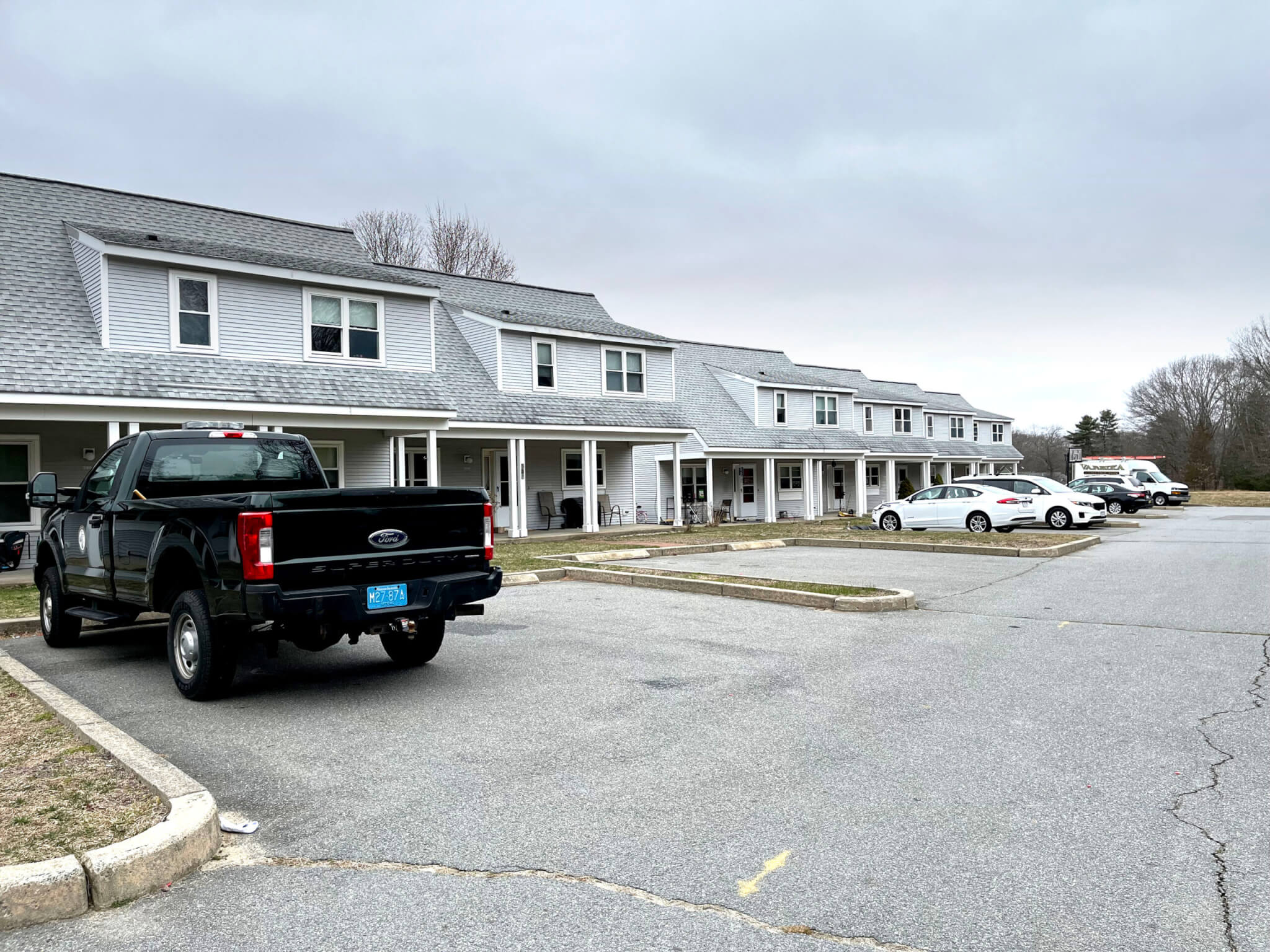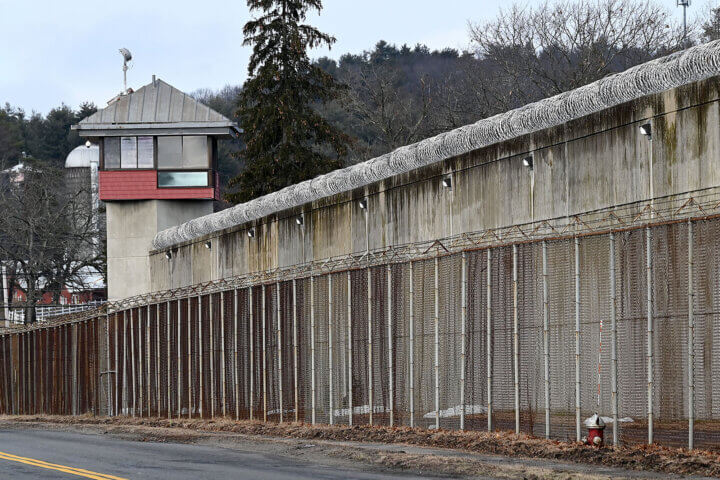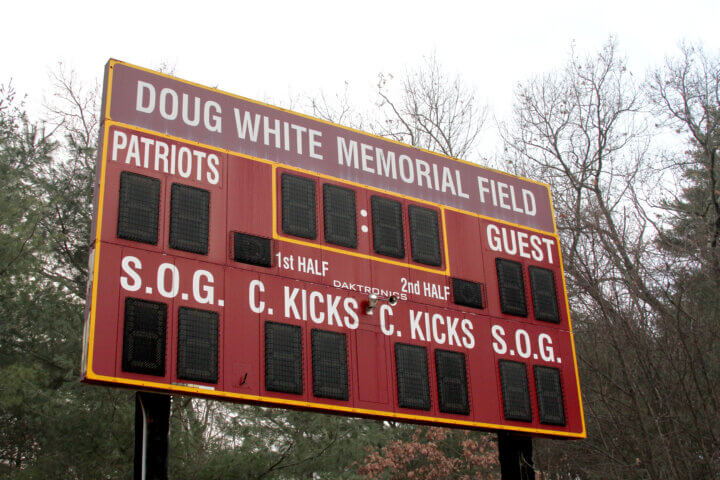By Betsy Levinson — Betsy@theconcordbridge.org
The state’s new housing czar visited Concord recently on his tour of all 231 state-sponsored public housing authorities, saying his municipal government experience gives him insight into local housing challenges.
As head of the newly created Executive Office of Housing and Livable Communities, Edward Augustus met with Concord Housing Authority members and talked up elements of the billion-dollar Affordable Homes Act Gov. Maura Healey introduced last fall.
“Public housing is in crisis,” Augustus said.
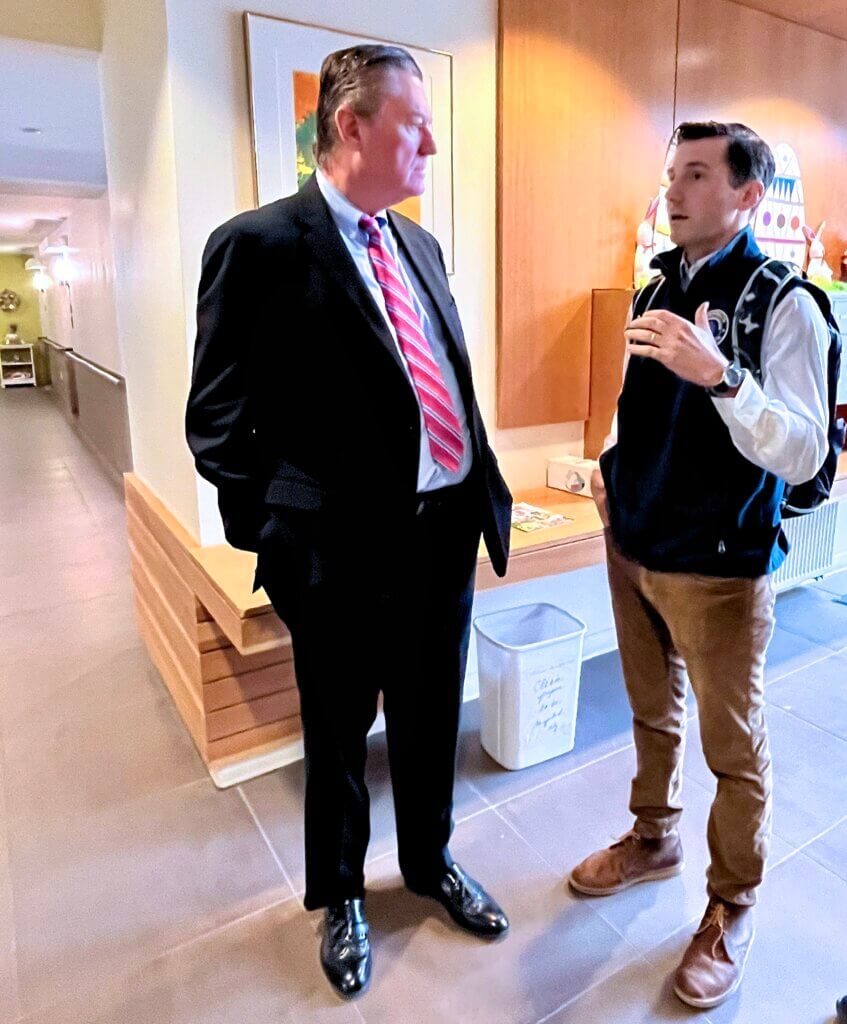
Augustus was city manager for nine years in Worcester, overseeing an expansion of housing for workers and immigrants that boosted economic development.
“I know what you deal with,” he said.
The Affordable Homes Act seeks to address the crisis by building more units and performing maintenance on older units in disrepair.
“We’re going to build more units and faster with this fund,” said EOHLC spokesman Noah Bombard, who accompanied Augustus.
Bombard said the state manages some 43,000 units, “the largest public housing of any state.” But it isn’t enough.
“It’s been underinvested for decades,” said Bombard.
He said the renewal program under the Act will include rentals “at every level,” including affordable and market-rate.
“We are trying to catch up,” Bombard said. “We haven’t produced housing for the last 30 years.”
Jennifer Polito, executive director of the Concord Housing Authority, which manages 221 units spread throughout town, sees a brighter future.
“We very much support the Affordable Homes Act,” she said. “It’s the biggest that we’ve ever seen and would do extraordinary things for our state’s public housing capital needs.”
Working together
The CHA is part of a group of seven housing-related committees that meet quarterly as the Concord Housing Roundtable.
Along with the CHA, it includes the Concord Municipal Affordable Housing Trust, Concord Housing Development Corporation, the Concord Housing Foundation, and the Planning and Zoning Boards.
“You’ve earned a great reputation as a well-run town,” Augustus said.
“Concord is fortunate. You are part of the community that supports public housing.”
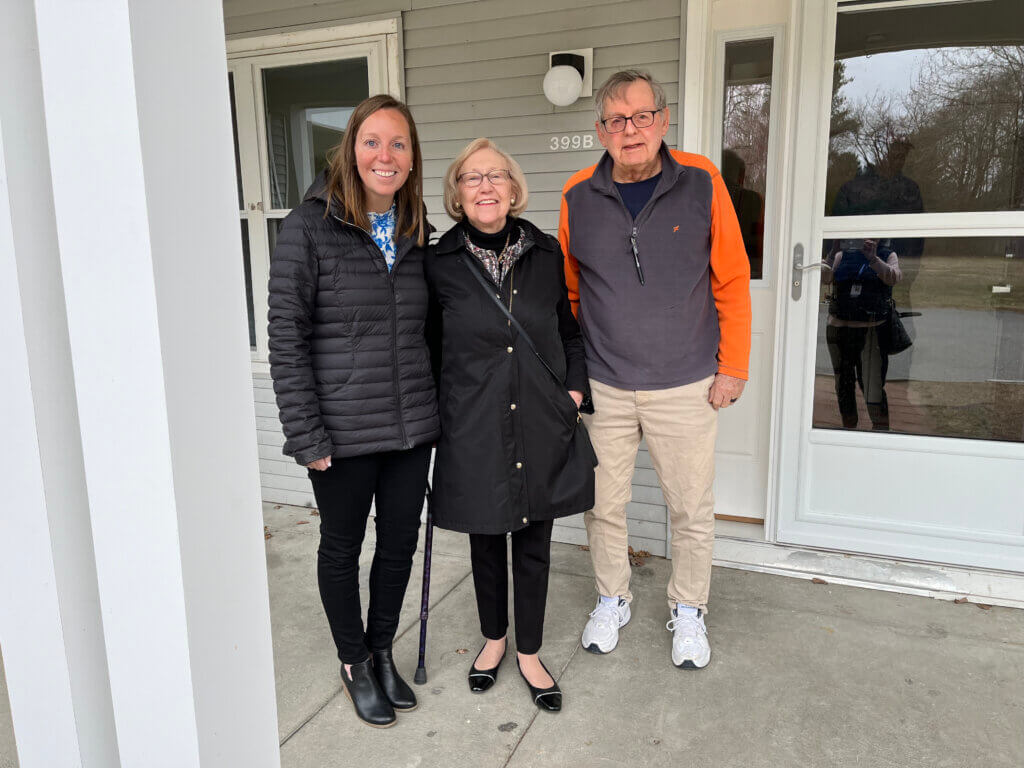
Augustus and CHA members toured the recently built eight-home development on Bedford Street.
CHA Chair Stephanie Chrobak noted Concord fell below the affordable housing level set by the state by two units. However, there are two projects that will add 417 apartments, including 105 affordable units “working their way through the Zoning Board of Appeals,” she said.
Chrobak is impressed that top state government figures are committed to affordable housing. “It’s important for leaders to touch the soil in town,” she said.
Breaking down barriers
The Affordable Homes Act investment is “the biggest in state history,” Augustus noted.
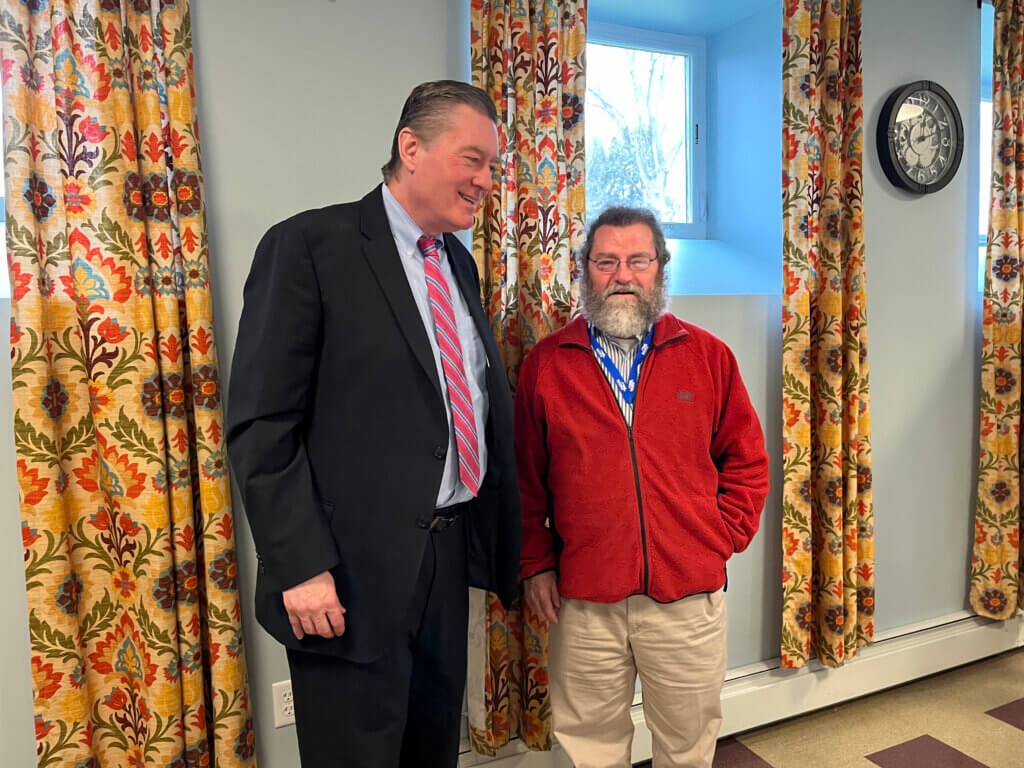
Along with funding new construction and maintenance, the Act seeks to remove barriers to developing Additional Dwelling Units “with no cost to the state,” since the property owner would create the unit.
Augustus also promoted the real estate transfer fee paid to the town when land changes hands, saying funds stay in the community and can be used for housing production.
“You’re doing everything right,” he said.
He also said the new MBTA Communities Law, which supports housing built within a half-mile of public transportation, is “necessary.”
“It’s a crisis throughout the state,” said Augustus. “We need housing near where you work.” There are 177 towns, including Concord, to which the law applies. Making Massachusetts affordable “starts with housing,” he said.
Select Board member Linda Escobedo said with the closure of MCI-Concord, the town sees an opportunity to include housing in the redevelopment mix, especially with the proposed affordable housing project on 12.6 acres adjacent to MCI land in West Concord.
Escobedo said the town is initiating a planning group to work with the state on the “big picture” for the newly available acreage.
“We have incredible expertise,” said Escobedo.
Augustus said the state “is in lockstep with the town” on prison land development.


